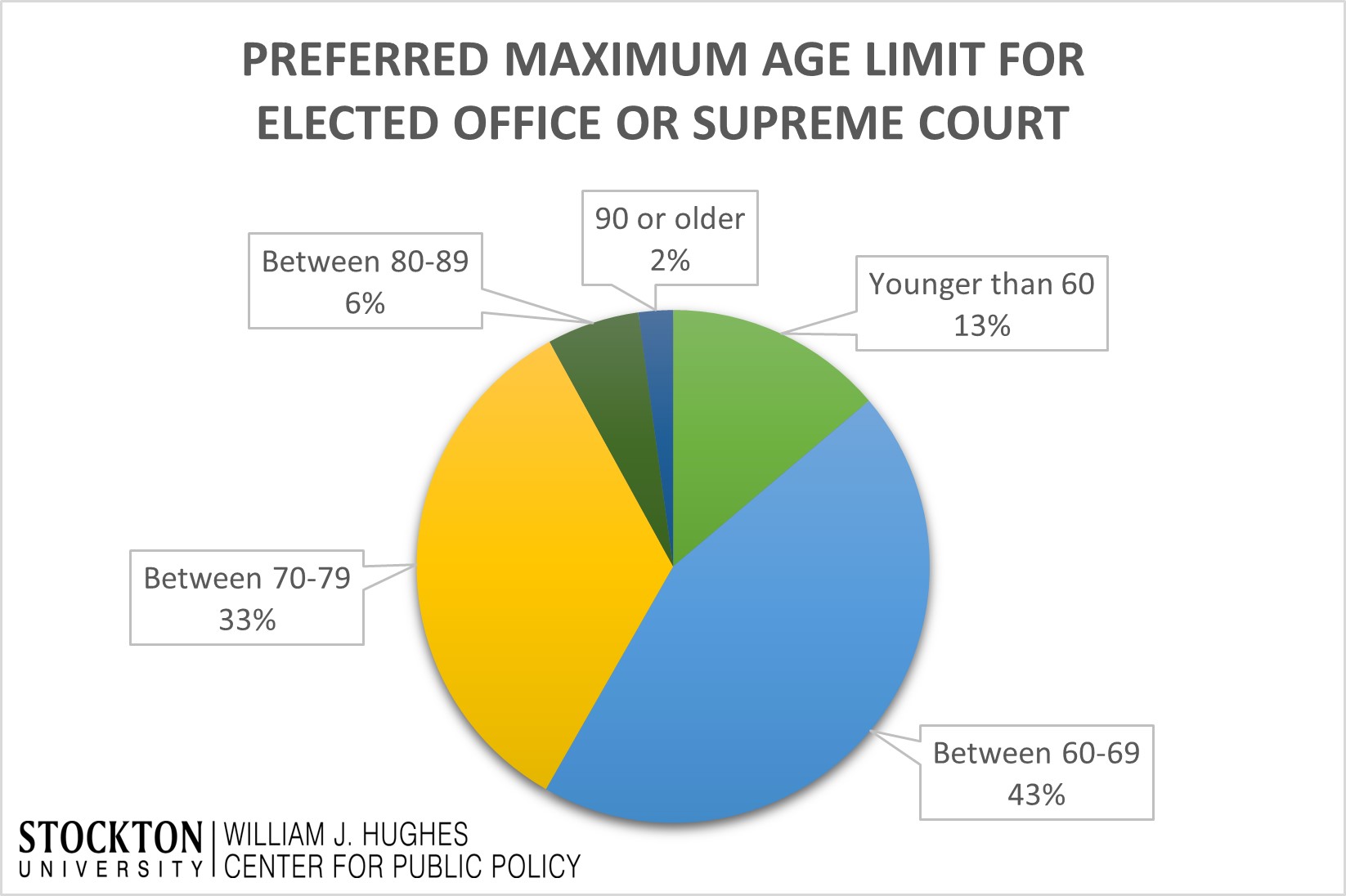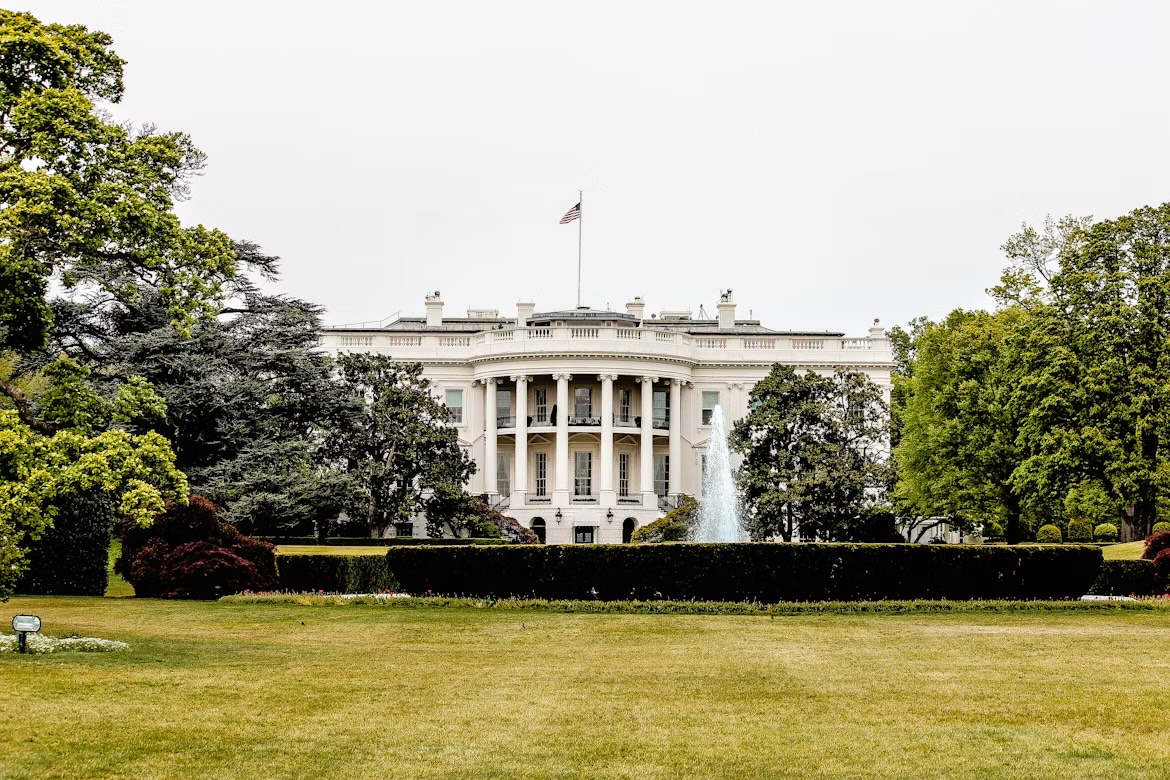Large majorities of New Jersey voters support term and age limits for elected leaders serving in both federal and state governments, according to a Stockton University Poll released Nov. 1.
Nearly three-fourths (72%) of New Jersey residents said elected officials should no longer be permitted to hold office once they reach a certain age, while 21% oppose such a limit and 6% are not sure.
More than two-thirds (69%) support maximum age limits for Supreme Court justices, while 22% oppose and 8% are not sure, the poll found.
A strong majority also supports imposing term limits on members of the U.S. Congress (80%) and the New Jersey State Legislature (80%). A minority of 14% and 13% oppose term limits on these bodies, respectively, while 5% are not sure.
The poll of 630 New Jersey adults released by the William J. Hughes Center for Public Policy has a margin of error of +/- 3.9 percentage points.
“We know from other recent polling that voters hold Congress in very low regard and are frustrated with the lack of progress in solving the nation’s problems,” said John Froonjian, director of the Hughes Center. “These results show a desire for new blood and fresh thinking.”
The median age of U.S. House members (59) and senators (65) has been trending upward for decades, outpacing that of the American people (39). Some of the longest-serving lawmakers have been in office for more than 40 years. President Biden, 80, is also the oldest sitting president and his likely challenger, Republican frontrunner and former president Donald Trump, is 77. Both Senate Minority Leader Mitch McConnell and former House Speaker Nancy Pelosi are in their 80s.
“Ideally, we would like our elected leaders to reflect the demographics of the public they represent,” Froonjian said.
When those who supported imposing an age cap were asked what that maximum age should be, a plurality (43%) said between the ages of 60 and 69. The second-highest rate of one-third said the maximum should be between 70 and 79.
Regarding term limits, of those who support them, a plurality of nearly half (48%) think the terms should be limited to up to 12 years, while 40% said they should be limited to only two to six years in office. The next highest rate of just 8% said up to 20 years in office should be the maximum.
“Support for these limits was universal,” said Research Associate Alyssa Maurice. “People of all ages and party affiliations are wary ics
of career politicians serving indefinitely.”
Those 65 and older still supported maximum age limits at a rate of two-thirds but did differ slightly on the preferred age. In this age group, a plurality said the cap should fall between 70 and 79, while pluralities in all other age groups preferred a younger maximum.
| Democrats | Republicans | Independents | |
| Support for maximum age limits for elected officials | 66% | 81% | 73% |
| Support for maximum age limits for Supreme Court justices | 73% | 67% | 66% |
| Support for congressional term limits | 78% | 83% | 82% |
| Support for N.J. legislature term limits | 76% | 84% | 83% |
You can find the full poll results here.
Methodology
The poll of New Jersey adults was conducted by the Stockton Polling Institute of the William J. Hughes Center for Public Policy from October 9-18, 2023. Stockton University students texted cell phones with invitations to take the survey online and Opinion Services supplemented the dialing portion of the fieldwork, which consisted of cell and landline telephone calls. Overall, 92% of interviews were conducted on cell phones and 8% on landline phones. In terms of mode, 79% were reached via dialing and 21% were reached via text-to-web. A total of 630 New Jersey adult residents were interviewed. Both cell and landline samples consisted of New Jersey voter list and random digit dialing (RDD) sample from MSG. Data are weighted based on U.S. Census Bureau ACS 2021 data for New Jersey on variables of age, race, education level, and sex. The poll’s margin of error is +/- 3.9 percentage points at a 95% confidence level. MOE is higher for subsets.
About the Hughes Center
The William J. Hughes Center for Public Policy at Stockton University serves as a catalyst for research, analysis and innovative policy solutions on the economic, social and cultural issues facing New Jersey, and promotes the civic life of New Jersey through engagement, education and research. The center is named for the late William J. Hughes, whose distinguished career includes service in the U.S. House of Representatives, Ambassador to Panama and as a Distinguished Visiting Professor at Stockton. The Hughes Center can be found on YouTube, and can be followed on Facebook@StocktonHughesCenter and X @hughescenter.










